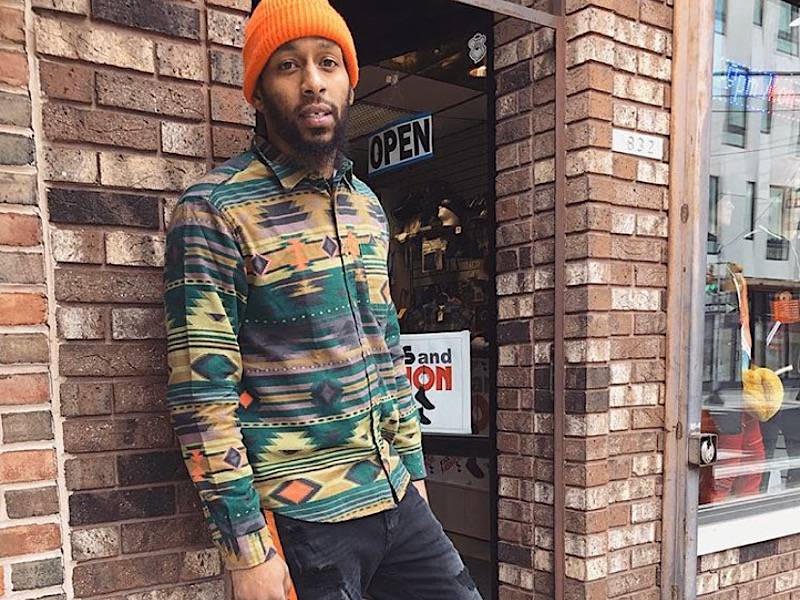Philadelphia, PA – More than ever, it’s confounding to find artists not documenting every move they make — especially given the ability to pull out a phone and start shooting. In recent months, we’ve seen just how powerful an archive of footage can be with the success of viral videos by both Lil Nas X and Billie Eilish showing insightful accounts of their careers before they ascended into new stratospheres of success.
While it can be understandably hard to step back and consider what will ultimately become great additions to a future documentary about your career (assuming you’ll have one), some of the most exceptional footage in the pantheon of Hip Hop was captured off of intuition — Kurt Nice filming one of the genre’s greatest cyphers is a perfect example.
For one artist in particular, Meek Mill, vintage footage captured over the years has helped to fill in the blanks and give fans an intimate look at the success that took the Philly heavyweight years to attain. While some have stories to back up their stripes, Meek has the proof — and it’s all thanks to close friend Dru Major.
”This my homie from my hood, the only one who had a camcorder back then,” Meek Tweeted recently, sharing a link to Dru’s Major Films Instagram page.
Dru laughs as he reads the Tweet while on the phone with RealStreetRadio. “I love that,” he says. “There is a lot of the footage that’s out there right now … 75% of the good stuff is coming from me. If you see the Major Films logo, you know, it’s coming from me.”
While he admits there was someone else in Philadelphia also recording some footage, his (which dates back to the summer of 2001) was much more intimate.
“I met Meek when I was like 16 … he didn’t speak much, but when he did speak he was spitting — and he was phenomenal.”
As he reveals, he also used to be an artist, stepping back around the time that Bloodhoundz (the foursome of Meek, Dat Nigga Lil, Mel Love, I and Young Pooh) was established.
However, it was clear that Meek was always the spark.
“He had star power. I always knew that out of all of us he was the one. I saw the hunger early,” he says. “At the time, I would document everything … then he started getting hot in the streets.”
Specializing in documentary-style film, Dru has a good stash of content from that era — beyond what’s already out there. However, it’s the footage of his longtime friend that has proven to be the most fruitful.
While the normalcy of artists sometimes get blurred as an excessive amount of wealth puts them further out of reach for ordinary folks, Dru’s footage places Meek in the trenches, eating his way up the food chain.
There is an overwhelming sense of pride in his voice while he describes his friend as being the guy on the block that everyone knew. He was a kid from the bottom who grew into a globally recognized superstar in his own right — connected to billionaires to boot. He has also (in recent years) become the face for prison reform in the United States.
“He’s done a lot of commendable shit,” he says. “I’m so lucky to have had [this content] fall into my lap. That was my boy … I was 18 when he started to blow up. I’m not just a homie; I’m a fan.”
Though there was an overwhelming amount of positivity that defined those years, Dru was personally dealing with a severe issue that threatened to ultimately engulph his life: opioid addiction.
“I was down bad,” he says, “I lost about ten years of my life to addiction. I’ve been clean for about two years.” He notes the easy access to his vice, the mixture of promethazine and codeine, didn’t help matters.
His experience and new lease on life helped to open his eyes to the sheer magnitude of the problem that is currently affecting over 2 million Americans and over 15 million people worldwide. While addictive and harmful opioids are glorified in the Hip Hop culture, he’s trying to curb youth from following his steps and bring awareness to the crisis at hand with his non-profit, Opioid Free Philly.
Founded in 2018, he’s been spreading his message through art and culture — specifically clothing. Though he describes a more direct approach he’s planning on taking.
“I want to get in touch with the youth,” he says, adding that he hopes to talk to middle and high school kids shortly. “I want to help them understand that they don’t have to be influenced by the music and the culture — because I was.”
While he hopes to take his programs to cities across the nation, he’s establishing roots in the community where he grew up in Philly.
With Meek’s new collaboration with Justin Timberlake, “Believe,” our in the world — and a new project in the pipeline — Dru says that a lot of the footage in his vault will see the light of day as part of the roll-out, though he is careful not to give anything away.
“I’m happy to able to help give fans the backstory,” he says humbly. “I’m grateful for the support and the love.”
For more amazing clips of Meek from the archives, follow Major Films on YouTube and Instagram.

